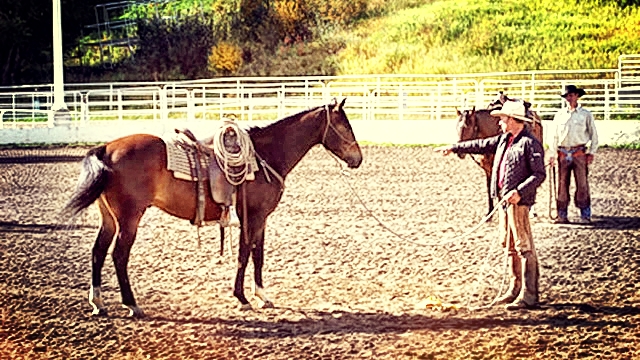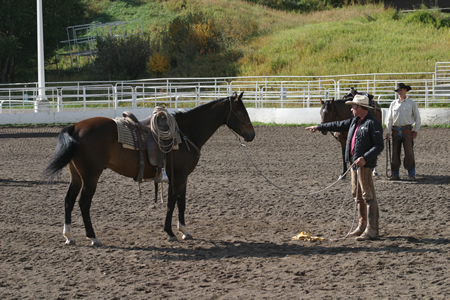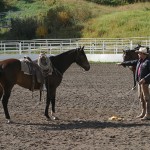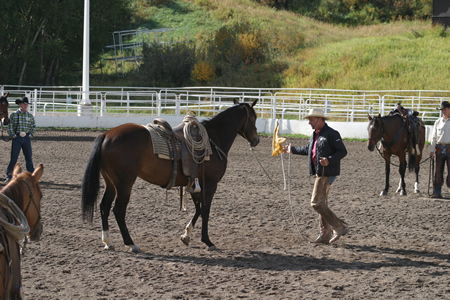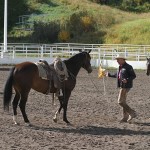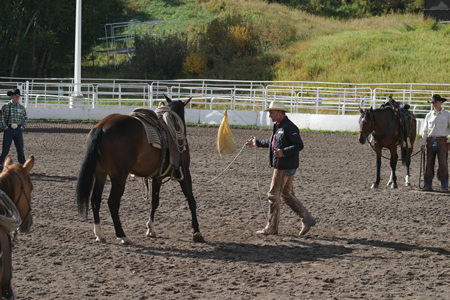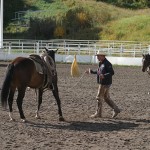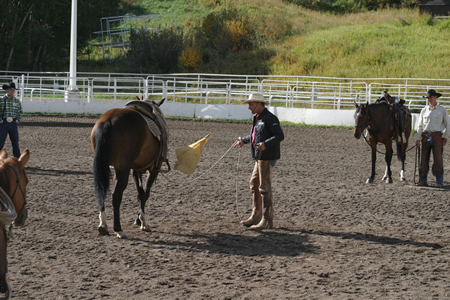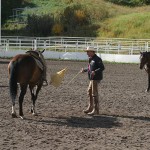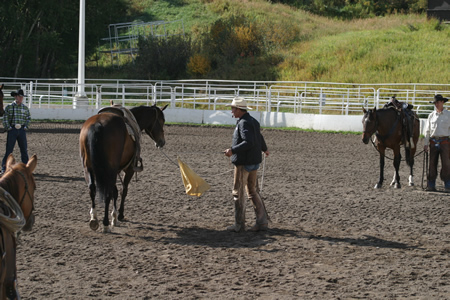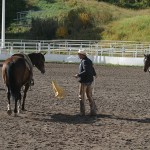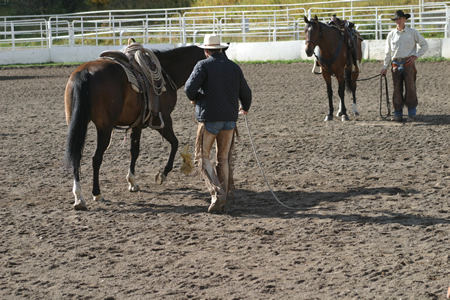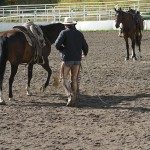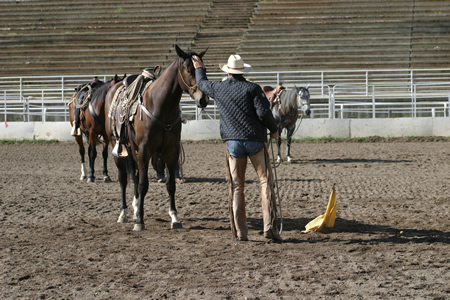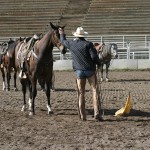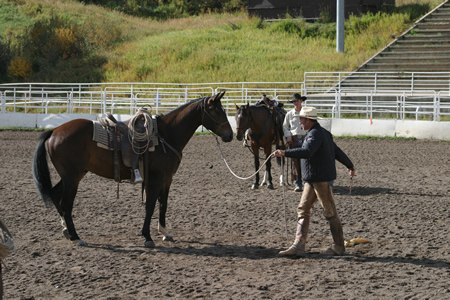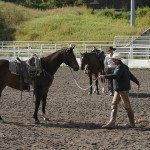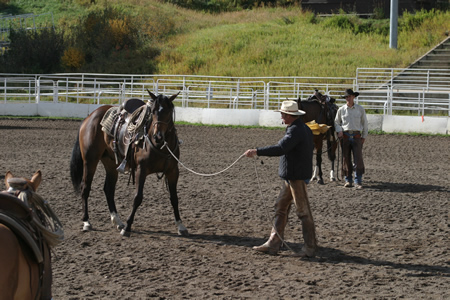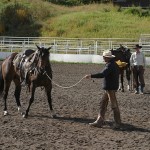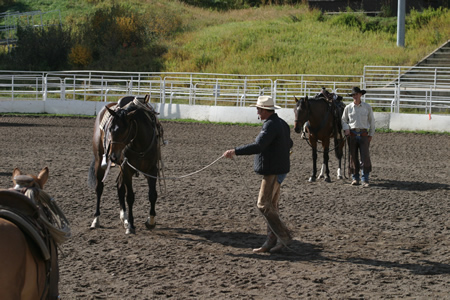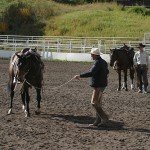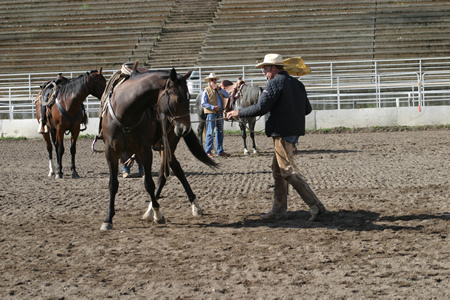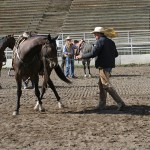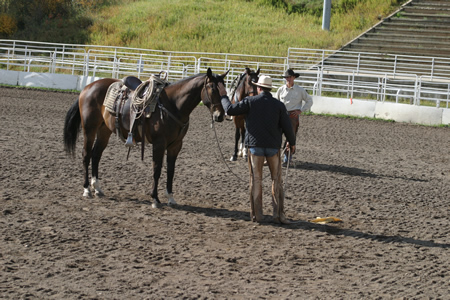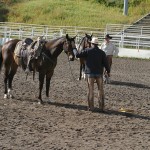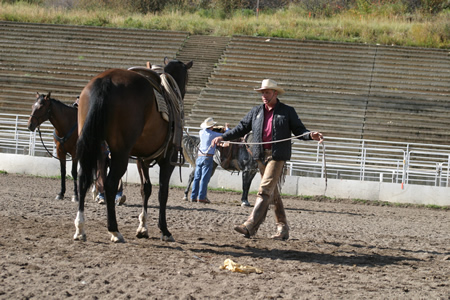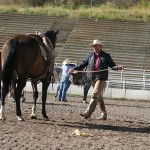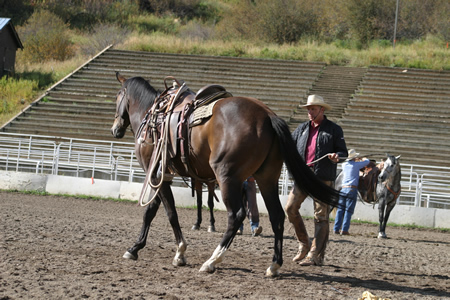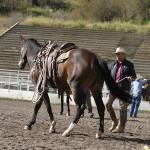With Buck Brannaman photos by Emily Kitching
This article originally appeared in Eclectic Horseman Issue No. 26
There are two parts to groundwork; safety and refinement.
The safety part is where you are working on having your horse to where he is relaxed enough so that when you get on you can have good things going on between you. The second part is building a level of refinement on the end of a lead rope that you will utilize when you are on your horse’s back. As you work through various exercises on the ground, you will begin to become aware of the connection between how your horse operates on the ground and when you are in the saddle,” said Buck Brannaman at the opening of his Foundation horsemanship class in Steamboat Springs, Colorado.
“Groundwork is good for any horse no matter how broke you think they are. There will be some things that you find you have a hard time doing, or cannot do well. The time it takes to have your horse respect you is relative to your skills. At the beginning your timing will be off, but as you start to get a little bit right, your horse will start to get what you are working on. As you become more skilled, you will be able to get done in minutes what was taking you days before.
“But this is no different than teaching a classroom of children. If you don’t have their attention, you are not going to get much done. So it is going to be a matter of being consistent, sometimes even being strict, so that you can get your horse to where he is willing to listen. If you have a horse that is undisciplined when you are riding him, you can bet on the fact that he is taking over on the ground. So creating situations where you rock the boat a little and ask some challenging things of your horse allows you to address that taking over in a safer position that will carry over to when you are on his back.”
With that introduction, Buck began demonstrating the first components of leading a horse by expanding on how he initiates the movement.
“In years past I’ve had you lead your horses by first offering a leading hand, then driving your horse forward around the circle. What I have found over time is that a lot of people do not start their horses off correctly in that circle. Their horse simply walks by in such a way that he is crowding them on the way by. They are being run over right off the bat. So to start off on the right path, I will have you clearing out the front quarters onto the circle you want them to travel first, then direct them forward on the circle.
“You can use your lead rope or your flag. I prefer to do my groundwork with a flag because I’m accomplishing several things at once I can help him learn to separate feeling relaxed about the flag moving around wildly and responding to the flag depending on the position of my leading hand.
“As I move my horse around me in a circle, I won’t stay stationary. I’ll keep walking right toward his elbow as he travels, which reinforces that he move out and around me instead of walking over me. I want his nose tipped toward me so his body is shaped just as I would like him to be if I were riding him in a circle. When I’m ready to ask for his hindquarters to untrack, I’ll step toward his hip. For those of you just getting started with your groundwork, you will ask your horse to untrack for a full circle, then let him come to a stop and face you. Then switch your hands on the rope, ask his front quarters to clear out and move to a circle in the new direction.
“You need to perfect how your horse starts his circle. If you do not start it out right, it will never end up right. Remember, you are driving the front quarters with your flag or the tail of your rope on his shoulder: no pulling the horse, all driving. This is the basic part of the dance steps you need to learn to get your horse freed-up and ready to ride.”

